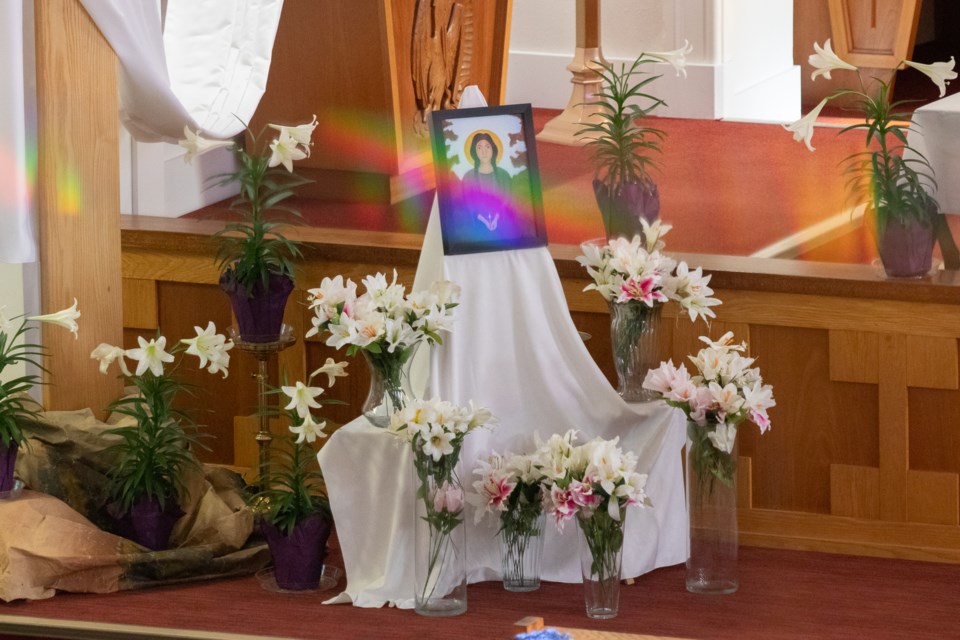ST. PAUL – The St. Paul Diocese held the annual Thanksgiving Mass of its secondary patron, the Saint Kateri Tekakwitha, on May 2.
Attended by parishioners from across the Lakeland, the mass honoured the life and legacy of the 17th-century First Nation saint, revered for her commitment to her faith, despite the challenges she faced in life.
St. Kateri, also called Lily of the Mohawks, is the first Native American saint canonized by the Roman Catholic Church.
Bishop Gary Franken said St. Kateri, born in the Mohawk village of Ossernenon in 1656, in what is now known as upstate New York, serves as an inspiration for honouring the Sabbath, not only as a day of rest, but as a concept to follow.
"One of the things that she witnesses to, teaches us, invites us to, and challenges us with, is honouring the Sabbath," said Franken, which is a day to focus on recognizing and expressing gratitude to God and His work.
It's a day to recognize that "It's not all about me," explained the bishop. "I'm not the centre. God is the centre."
Bishop Franken said St. Kateri also inspires him with her practice of finding solace in nature, where she would create small crosses from sticks as a reminder of her faith. "That is something beautiful for me," he said, not only because the act conveys respect to nature, but because the cross symbolizes creation, and the sacrifice of Jesus Christ to atone for the sins of humanity.
Background
St. Kateri passed away on April 17, 1680.
When she was baptized, she was renamed Kateri, which is the Mohawk form of "Catherine," after St. Catherine of Siena.
Her canonization process began in 1884, 204 years after her death. In 1980, she was beatified by Pope John Paul II, and canonized by Pope Benedict XVI at St. Peter’s Basilica in 2012.



